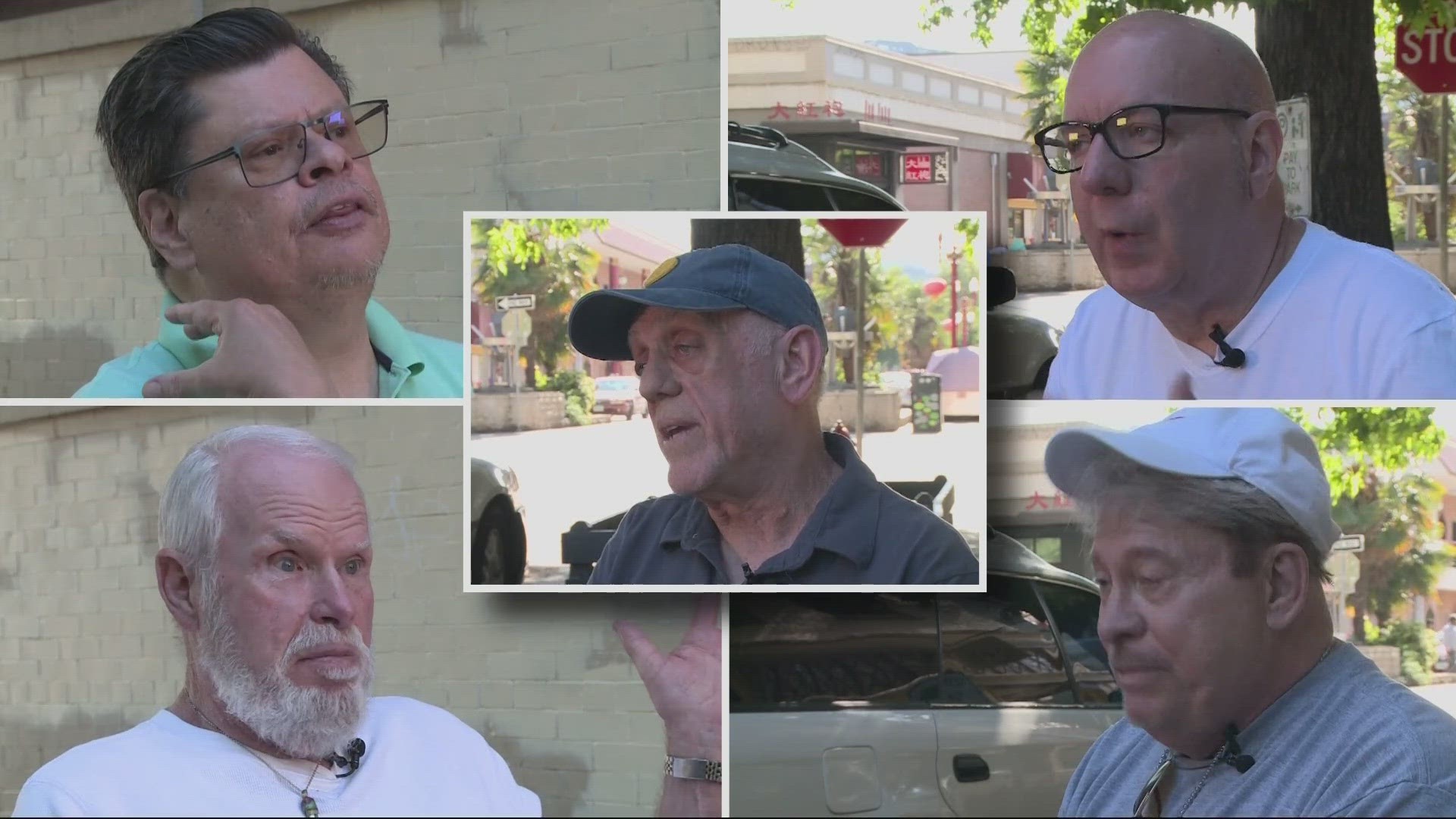PORTLAND, Ore. — On Thursday afternoons in Old Town, a group of older adults gathers for a happy hour each week. The conversation comes easy, and the camaraderie is clear, as they bond over a shared interest: in living a fulfilling life, and in aging well.
"I'm proud of every year. I fought like hell to get here," said 83-year-old Glenn Larson.
The experience of aging is universal. The experience of aging with HIV — less so.
Decades ago, a diagnosis was regarded as a death sentence. In the 90s, drugs to treat the virus made survival and a long, healthy life possible. But for many who lived through the worst of times, they grew older without a community — the disease having already claimed the lives of friends and partners.
Cascade AIDS Project asked Jim Clay, who worked for decades in public health, and HIV services, to survey this population of aging adults.
"There are so many needs that each of us, any of us, have," said Clay. "But there's one thing that was unique to people who are aging with HIV — and that is loneliness. Many of them lost their full community, lost their family and lost so much.
"There are people who have been a part of this program early on who said they [didn't] have one single person they could call for help. They [didn't] know anybody. There were people who said I've not crossed the threshold of my front door for six weeks because, if I were to go out, who would I go see?"
To fight that loneliness, about five years ago, he helped form a variety social groups for adults living with or affected by HIV, in order to create a path to community. All of those gatherings are under the Aging Well umbrella of services and supports. The Thursday gathering is one of them.
"We're just trying to make connections between people, and so far it seems like it's successful," said Clay.
Some of the group members shared their experience with HIV, and what this weekly tradition has meant to them over the last couple of years, with KGW.
"[HIV] was a death sentence," said Brett Conry. "I met new people and had new support and they died. It was just a continuation, you know, it went on for a long time...the question was, did I have three years? Or did I have six years? I really didn't think I had more than that. I certainly didn't think I had 37 years."
"It's essential for me to have a group like this in order to move forward."
"Unfortunately, stigmas still exists around HIV, even though it's been 42 years since the first cases were emerging," said Gene Bishop. "The sense of belonging, sense of community for me is so very important."
"We had two roommates and one of the roommates was really sick and we took him to the hospital, and he died that night. My older roommate died in six months. And then my partner died," said Robert Craig. "I think the best thing that anybody can do and is to be seen... to know that someone cares about me... and that I don't have to hide who I am."
"It hasn't been long that we had to start thinking about about living to a ripe old age for people with HIV," said Michael Wilson. "I have been sort of by myself for many years because my partner passed away from from complications of Alzheimer's. And now, I'm trying to rejoin the living."
"There is a new generation that is so accepting, heterosexual or gay," said Larson. "They're so accepting. I have no fear of coming down here."

